A minority of “extremists” in Hong Kong may target upcoming elections and important festivals, the city’s counter terrorism chief has claimed, as local disciplinary forces organised a joint drill to simulate armed and bio-chemical attacks.
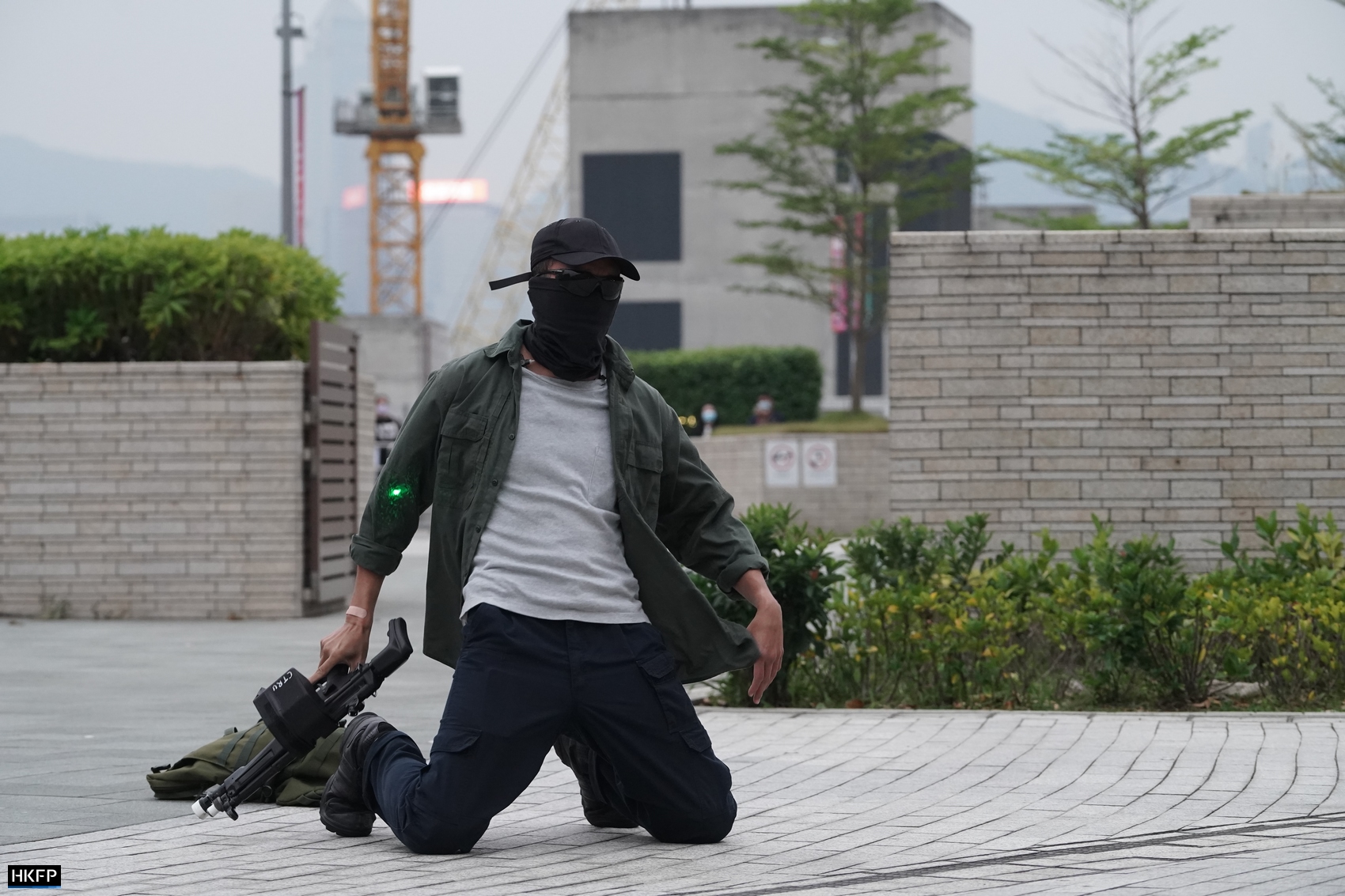
The drill on Friday saw around 300 officers from the police force, the Customs and Excise Department, the Correctional Services Department, the Fire Services Department, the Government Flying Service and the Immigration Department staging various simulated attacks at West Kowloon Station.

Senior Superintendent Leung Wai-ki of the Inter-departmental Counter Terrorism Unit (ICTU) said before the drill that – although public order in Hong Kong has been restored – the city still experienced a serious string of “violent incidents” including the “lone-wolf domestic terrorist attack” in Causeway Bay on July 1.
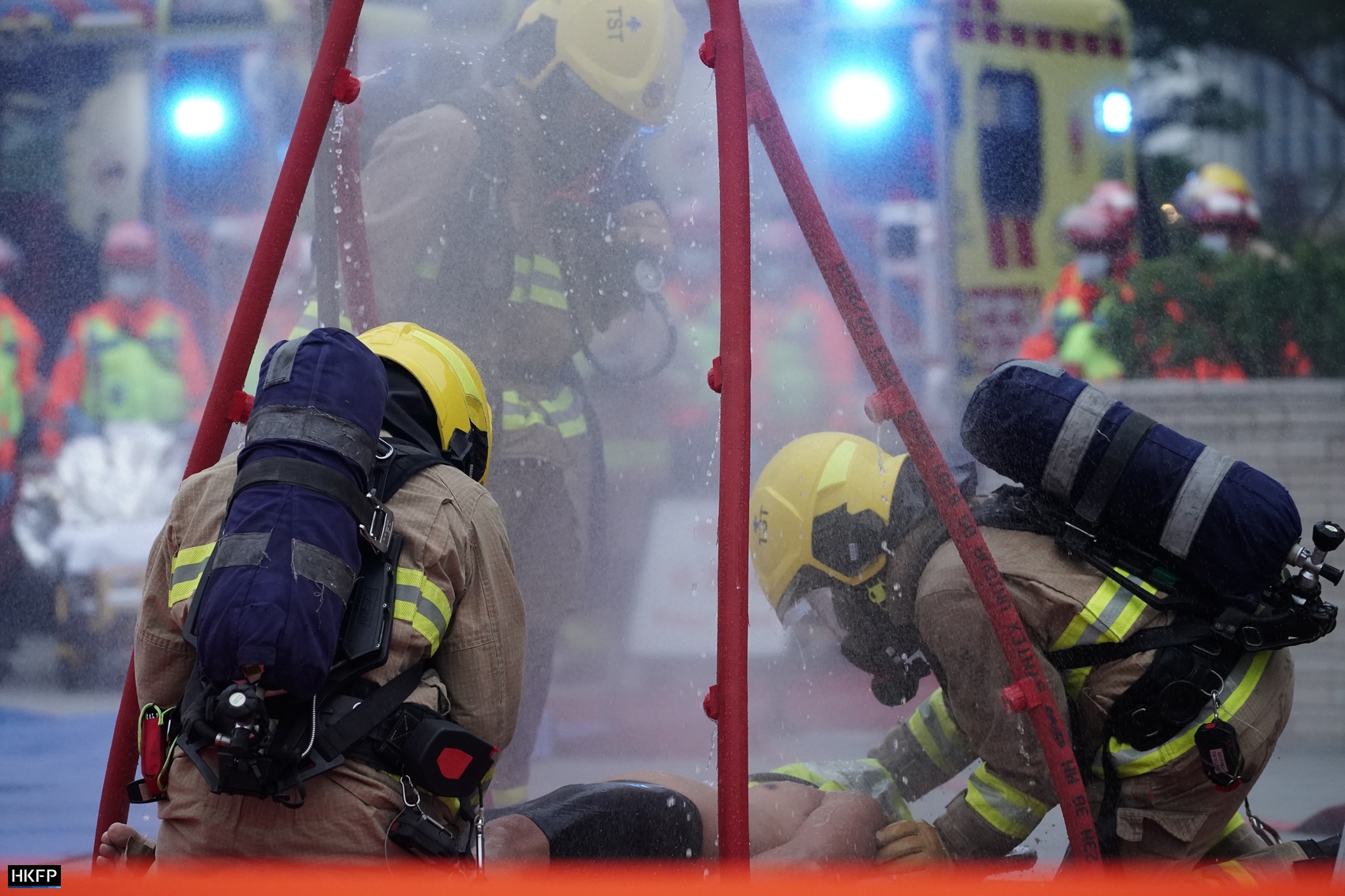
He also referred to the group “Returning Valiant,” whose members – some teenagers – are facing trial under the national security law for allegedly taking part in a conspiracy to commit terrorism.

“[T]he crackdown on the radical group Returning Valiant illustrated that some local radicals have not abandoned their extremist pursuit,” Leung said, adding that the authorities have dealt with at least five cases which involved genuine firearms over the past two years.

On July 1, 50-year-old Leung Kin-fai stabbed a uniformed police officer with a knife outside the SOGO mall when the city marked 24 years since its handover to China.

The attacker later committed suicide at the scene using the same knife.

Leung’s death was mourned by some Hongkongers, but their tributes drew severe criticism from the authorities who said they were “glorifying” violence. Some University of Hong Kong students were arrested, despite apologising and retracting their comments.

The senior superintendent went on to say that local “radical groups” have tried to continue to operate covertly.

They may, like extremists in other places, select a “symbolic date” to carry out their attacks to “make a greater impact,” such as the upcoming elections and important festivals.

“They [may] attempt to continue their extremist activities clandestinely and might seek to stage attacks on significant or sensitive days when the opportunity arises,” the ICTU chief said.
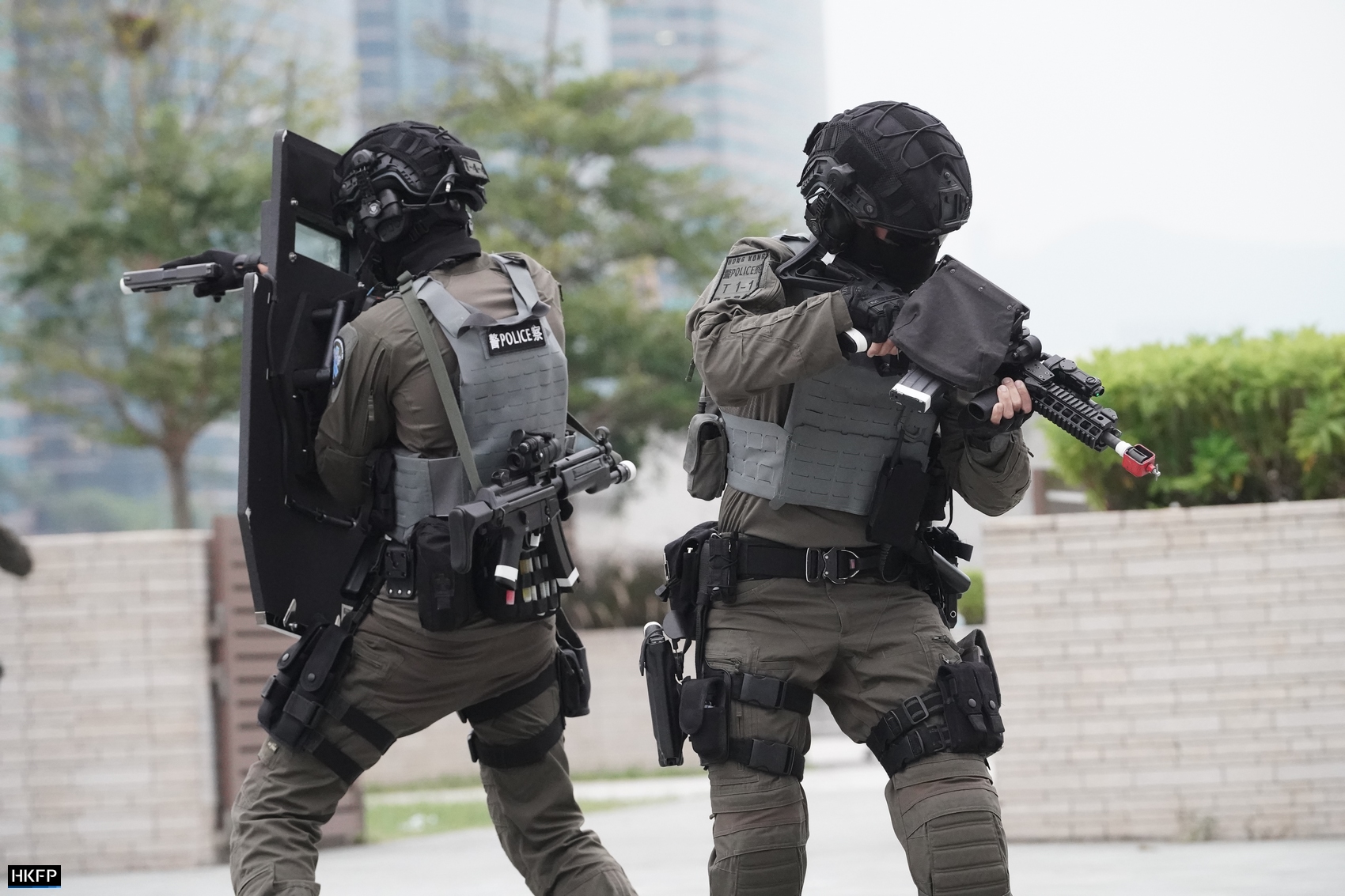
Leung said the main message of Friday’s drill was to encourage citizens to “spot and report” when they encounter suspected terrorist acts. He said such a concept was not new, as similar campaigns were launched by law enforcement agencies in many western countries.

“Actually the overall terrorism stress level is moderate, there is no specific events suggesting that Hong Kong is subject to any terrorist attack… [but we need to] ensure we are fully prepared to respond and deal with any kind or any format of terrorist instances.”
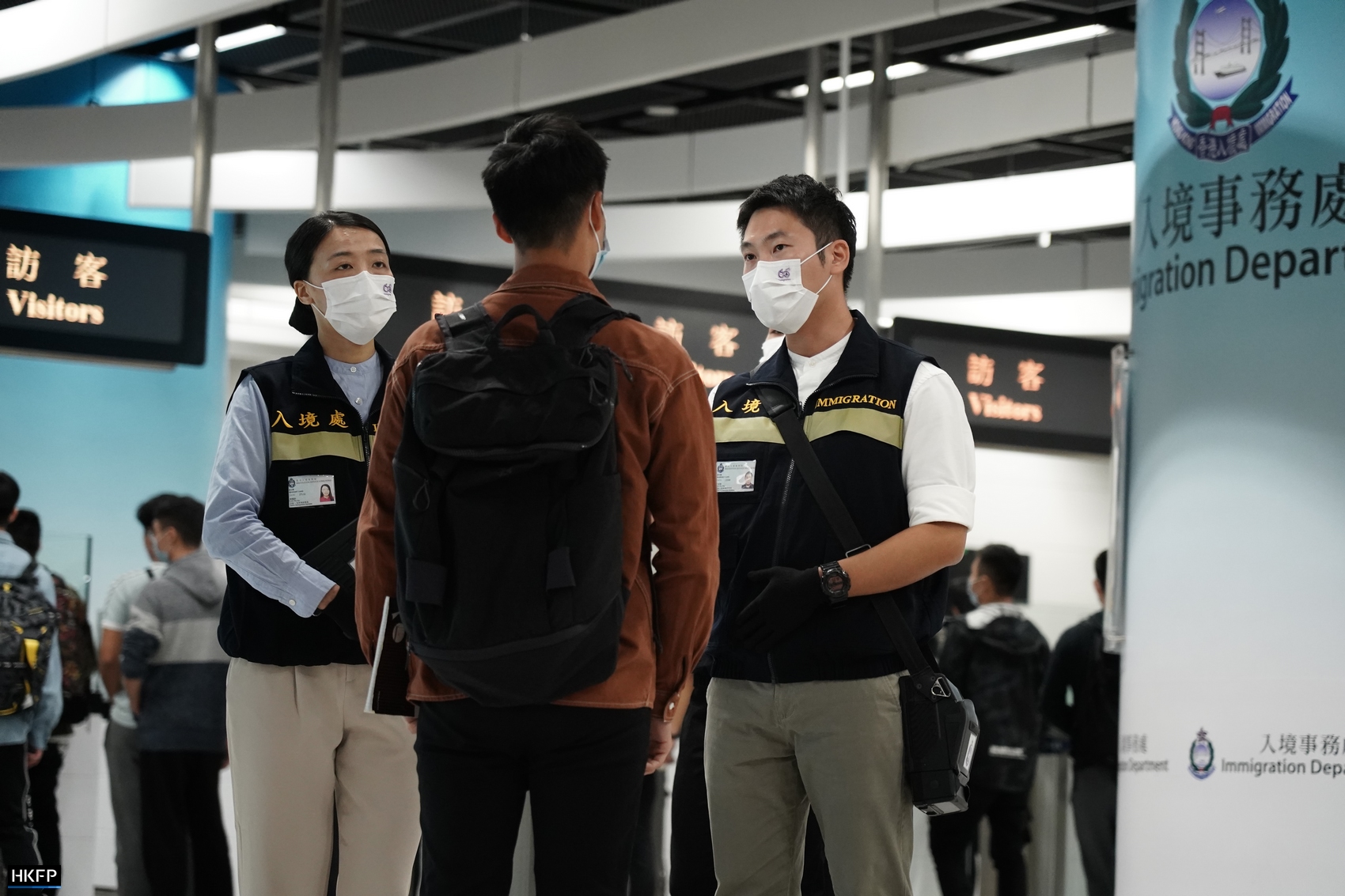
The 90-minute drill included a man who attempted to use a forged passport to enter Hong Kong, but was spotted by immigration staff using a mobile document reader.

Secretary for Security Chris Tang and Commissioner of Police Raymond Siu were among dozens of observers.

Another staged incident involved customs officers using an explosive detector dog to identify a man who was carrying a suitcase that had traces of explosives.
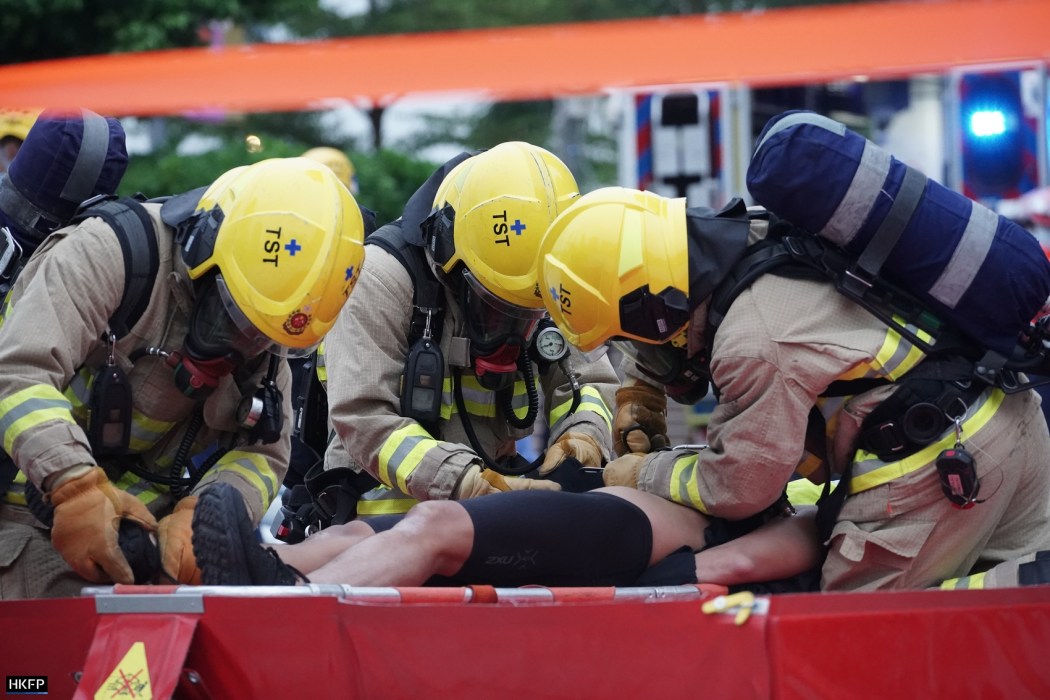
The Government Flying Service team took part to support police in pursuing a wanted vehicle, while the Government Laboratory staff collected forensic evidence including fibre and DNA lifting.

The last staged scene involved a man who opened fire at a crowd, with chemical, biological, radioactive and nuclear devices being denoted.

It was handled by officers in full hazmat suits who helped decontaminate the scene whilst explosives experts removed the device in question.
Support HKFP | Policies & Ethics | Error/typo? | Contact Us | Newsletter | Transparency & Annual Report | Apps
Help safeguard press freedom & keep HKFP free for all readers by supporting our team

LATEST FROM HKFP
HKFP has an impartial stance, transparent funding, and balanced coverage guided by an Ethics Code and Corrections Policy.
Support press freedom & help us surpass 1,000 monthly Patrons: 100% independent, governed by an ethics code & not-for-profit.










